Rabbits need care too!
Rabbits are susceptible to a variety of illnesses. Many of these illnesses can be prevented when a rabbit care giver works in combination with their veterinarian. Rabbits make excellent pets and when well cared for can live up to 10 to 12 years.
Diet is the key to excellent rabbit care. The bulk of their diet should consist primarily of hay. Hay contains fiber that will stimulate the rabbit’s intestinal tract in order for it to constantly contract. This will help prevent hair ball obstructions and over growth of toxin producing bacteria. Another important component of their diet is dark leafy green vegetables, which provide many of the nutrients to the rabbit’s diet. Lastly pellets should be included in the diet although adult rabbits actually are healthier without any pellets at all! Avoid foods such as nuts, seeds, fruit, crackers, breads and cereals. These foods do not contain enough fiber and encourage the growth of disease causing bacteria in the intestinal tract. If your rabbit will not eat hay it likely means that he is filling up on too many pellets.
Brushing your rabbit regularly and removing hair from the cage are very important to help prevent hair ball obstructions.
Maintaining a healthy weight helps prevent arthritis and sores on the bottoms of their feet. The main cause of obesity is lack of exercise and eating too many pellets. Do you know there are about 400 calories in one cup of pellets! Routine examinations will help us chart your rabbits’ weight and make recommendations to keep your bunny slim.
Checking their teeth, including the back molars, is important to do every 6 to 12 months so that overgrown teeth can be detected early. Occasionally teeth become overgrown, sharp, and can damage the inside of the mouth. During a physical examination all teeth are examined including the back molars with a scope.
Did you know that during a physical examination we listen to the sounds of your rabbit’s intestinal tract with our stethoscope? This helps us to know that your rabbit’s intestinal tract is active and healthy.
Other common illness that rabbits can experience are ear infections, abscesses, bladder stones, dental abscesses, eye ulcers and infections, ear and skin mites, arthritis and intestinal worms. We also treat rabbits for things like broken limbs and wounds.
Did you know that 85% of female rabbits develop uterine cancer by the age of two? This is one of the reasons that spaying is such an important preventative procedure for your rabbit. Rabbits are also susceptible to uterine aneurysms a sudden life-threatening hemorrhage. Again, spaying will prevent this health problem.
Neutering a male rabbit will help control aggression and aid in toilet training habits. Unaltered male rabbits can develop testicular cancers which are reasonably common.
In general, anesthesia for rabbits is safe as long as the anesthetic procedure does not exceed 45 minutes. After this period of time the lungs of a rabbit may start to collapse. This is one reason why it is very important to pick an experienced veterinarian when booking the spay or neuter procedure for your rabbit.
At Martindale Animal Clinic all rabbits having surgery are placed on monitoring equipment. Particularly important is maintaining blood pressure and ventilation (breathing). All rabbits receive intravenous fluids to help maintain their blood pressure, and can receive chest x-rays with owner authorization to assess the health of the lung tissue before the surgery begins.
With all of this in mind, we strongly recommend that rabbits be spayed and neutered and receive a physical examination every year.
Don’t delay your rabbits first visit to the veterinarian. Addressing potential health problems for your rabbit now will make for a healthier and loving pet! Call us today! 905 682 5551 or click here to book an appointment for your rabbit.
Please see below for a digital copy of our Rabbit Care booklet. We will have a copy waiting for you at your first appointment!

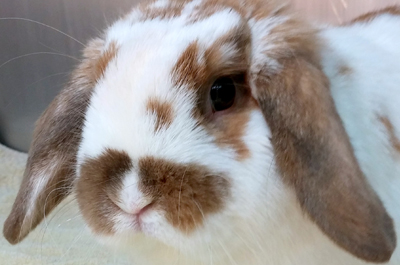
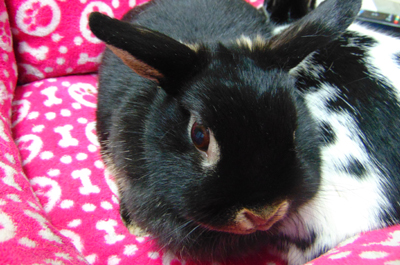
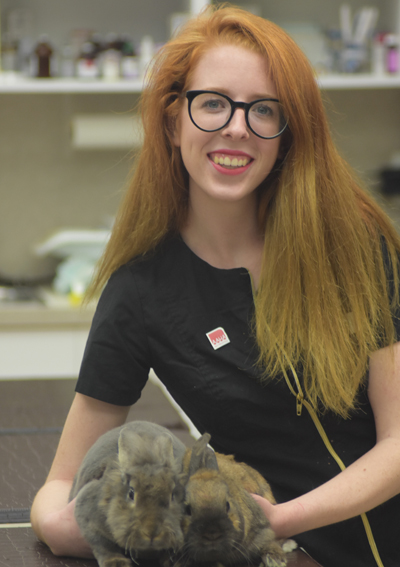
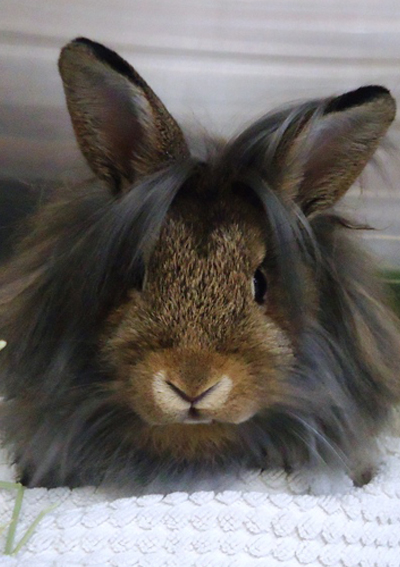
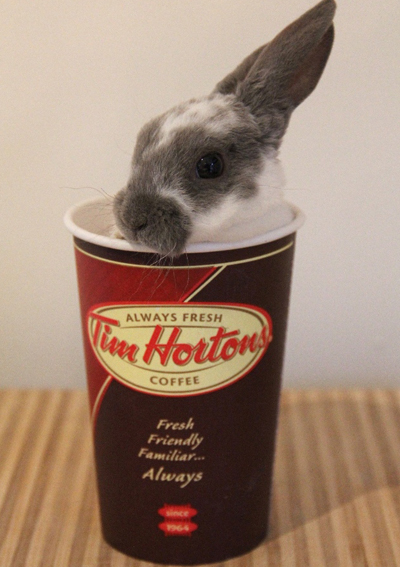
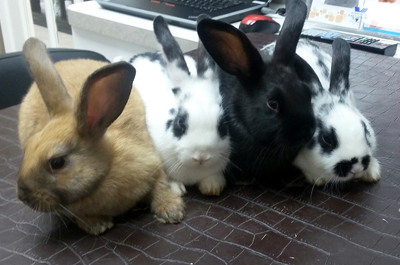
Serving St. Catharines and Niagara Region